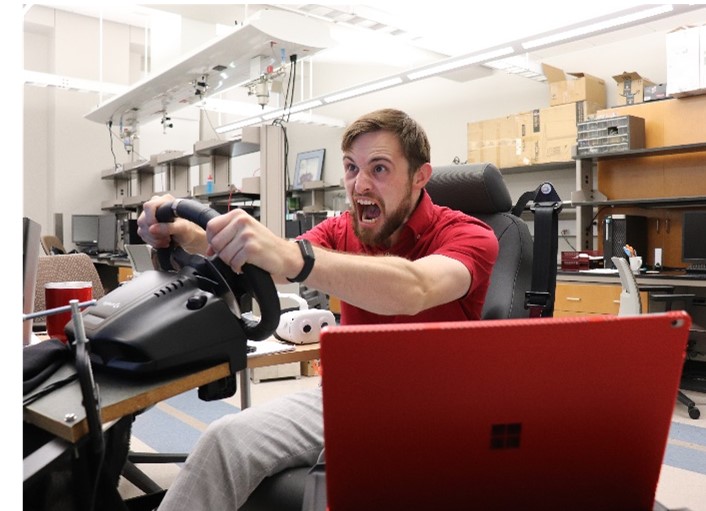
Abstract
People operating motor vehicles are often required to engage in decision-making while under substantial cognitive loads imposed by the driving environment. In such situations, distractions, both external and internal, can compromise the safety of individuals and the system. Driving under the influence of elevated emotions has been shown to increase the risk associated with driving by 10 times compared to driving in a calmer emotional state. Aggressive driving behaviors, which include driver interaction with other drivers on the roadway, lane change behavior, and speeding, are often associated with rage and anger, but they are also seen in the experience of elevated states of happiness. Therefore, there is a need for interventions to de- escalate elevated emotional states in a manner that improves driving safety and performance while imposing minimal additional load on the driver to engage with these interventions. This study employed three interventions that utilized different sensory modalities and a range of cognitive demands from the driver and compared them to driving under anger and happiness with no intervention. Results suggest that the use of interventions can have a positive effect on aspects of driving, such as tailgating, speeding, and yellow light behavior, as well as the driver’s workload.
Final Report
Research Investigators (PI*)
Thomas Ferris (TTI/TAMU-Student)*
Sahinya Susindar (TTI/TAMU-Student)
Harrison Wissel-Littmann (TTI/TAMU-Student)
Project Information
Start Date: 01-06-2021
End Date: 01-09-2022
Status: Complete
Grant Number: 69A3551747115
Total Funding: $68,276
Source Organization: Safe-D National UTC
Project Number: TTI-Student-09
Safe-D Theme Areas
Big Data Analytics
Connected Vehicle
Safe-D Application Areas
Driver Factors and Interfaces
Risk Assessment
Vehicle Technology
More Information
Sponsor Organization
Office of the Assistant Secretary for Research and Technology
University Transportation Centers Program
Department of Transportation
Washington, DC 20590 United States
Performing Organization
Texas A&M University
Texas A&M Transportation Institute
3135 TAMU
College Station, Texas 77843-3135
USA
